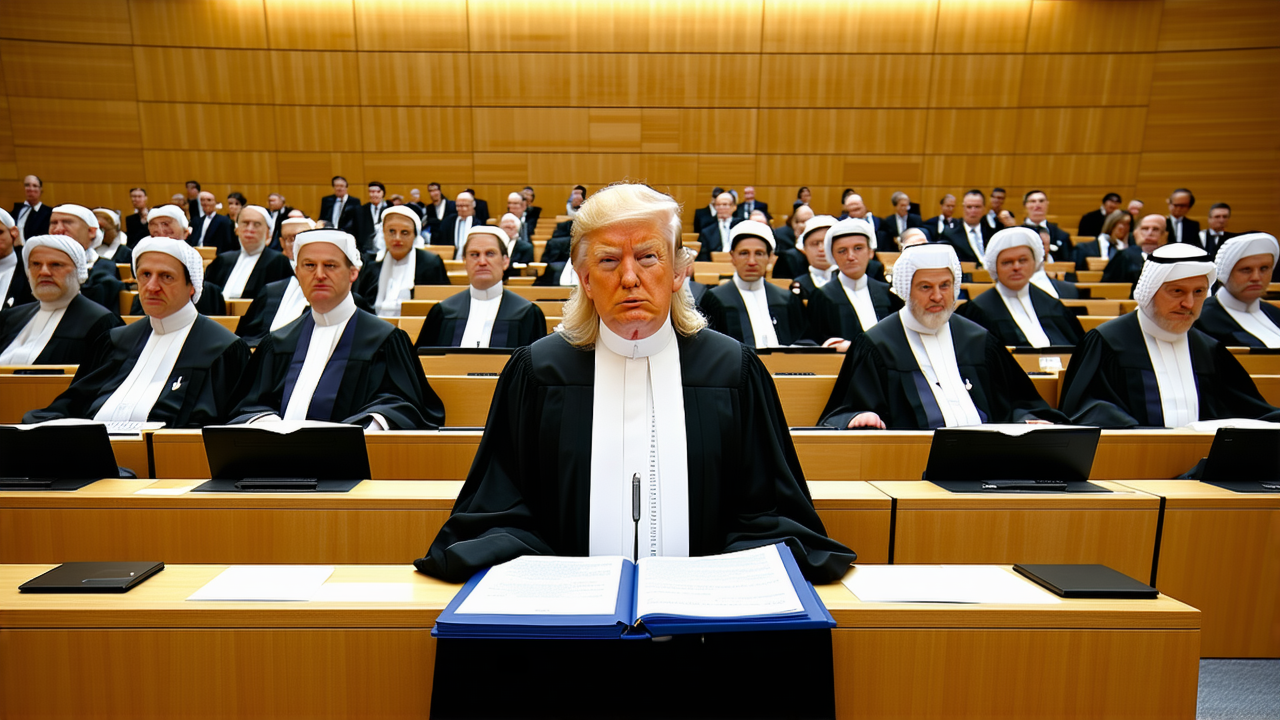World Court Issues Landmark Opinion: Countries Must Act on Climate Change
World Court Issues Landmark Opinion: Countries Must Act on Climate Change
In a historic move, the International Court of Justice (ICJ), also known as the World Court, has issued a landmark advisory opinion emphasizing that all nations must take immediate and collective action to address the "urgent and existential threat" of climate change. The ruling, delivered by the UN's highest court, underscores the legal and moral obligation of countries to reduce greenhouse gas emissions and uphold international climate treaties.
The opinion, which has been hailed as a significant victory for small island and low-lying states, asserts that failure to meet climate commitments may lead to legal action by states adversely affected by climate change. This development could significantly alter the landscape of future climate litigation, giving affected nations a legal basis to hold others accountable for their emissions.
Judge Yuji Iwasawa, who read out the court’s advisory opinion, emphasized that countries are bound by "stringent obligations" under international law to reduce emissions and achieve ambitious climate targets. He stated that national climate plans must be "of the highest ambition" to align with the goals of the 2015 Paris Agreement, which aims to limit global warming to 1.5°C above pre-industrial levels.
The court also recognized the human right to a "clean, healthy, and sustainable environment" as essential for the enjoyment of other human rights. This marks a turning point in the legal recognition of environmental rights on a global scale.
"Greenhouse gas emissions are unequivocally caused by human activities which are not territorially limited," Judge Iwasawa said, highlighting the need for a collective response. He stressed that historically, wealthy industrialized nations have been the largest contributors to emissions and must take the lead in addressing the climate crisis.
Although the ICJ’s advisory opinion is not legally binding, it carries significant political and legal weight. Legal experts have noted that future climate cases will be unable to ignore this landmark ruling, which may pave the way for legal action against major emitters.
Danilo Garrido, legal counsel for Greenpeace, described the opinion as the "start of a new era of climate accountability at a global level." Similarly, Sebastien Duyck of the Center for International Environmental Law noted that victims of climate harm may now have the right to seek redress through legal means.
The court’s decision follows two weeks of hearings last December, during which the ICJ was asked by the UN General Assembly to consider two key questions: what are the legal obligations of countries to protect the climate from greenhouse gas emissions, and what are the legal consequences of failing to meet those obligations?
While wealthy nations from the Global North argued that existing climate treaties should form the basis of climate responsibilities, developing nations and small island states called for stronger and, in some cases, legally binding measures to curb emissions and provide financial aid to the most vulnerable.
According to the UN’s "Emissions Gap Report," current climate policies are projected to result in global warming of more than 3°C above pre-industrial levels by 2100. With climate-related litigation increasing rapidly, nearly 3,000 cases have been filed across almost 60 countries, as activists seek to hold governments and corporations accountable for their role in the climate crisis.
This landmark ruling from the ICJ has the potential to reshape the global climate agenda, reinforcing the need for urgent and coordinated action to prevent the worst impacts of climate change.
